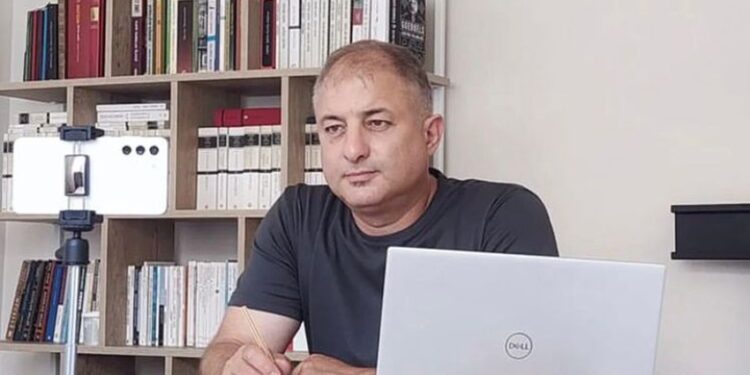A journalist who has been working as a reporter for KHK TV, a YouTube channel established by victims of a post-coup purge in Turkey, was kept in custody for two days before he was released from detention, the Kronos news website reported.
Following a failed coup in 2016, President Recep Tayyip Erdoğan’s Justice and Development Party (AKP) government carried out a massive purge of state institutions under the pretext of an anti-coup fight, summarily dismissing more than 130,000 public servants as well as some 30,000 military personnel for alleged membership in or relationships with “terrorist organizations” by emergency decree-laws subject to neither judicial nor parliamentary scrutiny.
Ahmet Erkan Yiğitsözlü, whose news stories on KHK TV have focused on the injustices faced by the purge victims and who was detained after counterterrorism police carried out a search of his house in the southern province of Osmaniye on Tuesday, was released on Thursday.
Yiğitsözlü’s release was announced on Twitter by KHK Platforms’ spokesman Münir Korkmaz, who said this was what needed to be done and that journalism wasn’t a crime.
Olması gereken.KHK TV Muhabiri Ahmet Erkan Serbest bırakıldı.
GAZETECİLİK SUÇ DEĞİLDİR— Münir Korkmaz (@mkorkmaz62) November 17, 2022
The journalist’s detention had drawn criticism from opposition politicians, human rights defenders and social media users.
“The detention of [Yiğitsözlü], a journalist and reporter for KHK TV, an independent human rights channel, is unacceptable,” Korkmaz had previously said in a tweet.
https://twitter.com/mkorkmaz62/status/1592431151339241473?cxt=HHwWgoC8jb7suZksAAAA
Ömer Faruk Gergerlioğlu, a lawmaker from the pro-Kurdish Peoples’ Democratic Party (HDP) and a prominent human rights defender, brought the issue to parliament’s agenda on Wednesday, calling for the immediate release of Yiğitsözlü.
It is common for journalists in Turkey, which has a poor record on freedom of the press, to face threats, physical attacks and legal harassment due to their work.
Rights groups routinely accuse the Turkish government of trying to keep the press under control by imprisoning journalists, eliminating media outlets, overseeing the purchase of media brands by pro-government conglomerates and using regulatory authorities to exert financial pressure, especially since President Erdoğan survived a failed coup in July 2016.
Turkey, which is among the top jailers of journalists in the world, was ranked 149th among 180 countries in the Reporters Without Borders (RSF) 2022 World Press Freedom Index, released in early May.
The AKP’s post-coup crackdown ruined the lives of tens of thousands in Turkey who have been targets of hate speech, hate crimes, unlawful prosecution, torture and abductions, among other serious human rights violations.
Former public servants were not only fired from their jobs; they were also prohibited from working again in the public sector and getting a passport. The government also made it difficult for them to work formally in the private sector.


